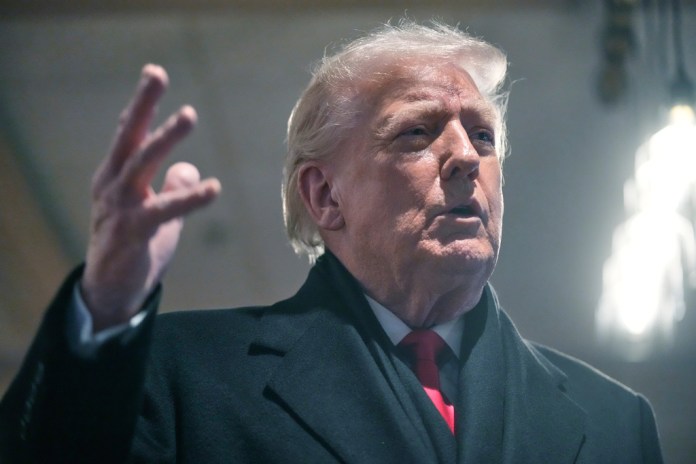Shutdown battle presents Schumer with latest unity test
Teh article discusses the ongoing battle over government funding in the U.S. Senate, focusing on Senate Minority Leader Chuck Schumer’s renewed efforts to unify Democrats against Republicans in the face of a potential government shutdown. Unlike earlier in the year when Schumer conceded to Republican demands, drawing internal party criticism, he now appears resolute to hold firm. Schumer and house Minority Leader Hakeem Jeffries are insisting on extending expiring Obamacare subsidies as a condition for supporting a short-term funding extension that would delay the funding deadline from September 30 to November 21.
Schumer argues that Republicans are in a weaker position due to unfavorable polling on Trump’s tax cuts and recent White House funding disputes. However, it remains uncertain if Schumer can maintain full Democratic caucus unity, as some senators had previously broken ranks. Democrats have been coordinating messaging to place blame on Republicans should a shutdown occur and are preparing a counterproposal that includes protections for Affordable Care Act tax credits and restrictions on the White House’s ability to rescind federal funds.
Republican leaders, simultaneously occurring, dismiss Democratic demands as politicizing the issue, framing their short-term funding extension as a practical measure to keep the government running while broader budget talks continue. Senate Majority Leader John Thune and other Republicans have indicated willingness to negotiate subsidies later but reject tying them to the current extension. The political standoff involves complex dynamics, including concerns over recent security for lawmakers and differing perspectives within both parties on spending levels and negotiation strategies, leaving the outcome uncertain as the funding deadline approaches.
Shutdown battle presents Schumer with latest Democratic unity test
A brewing fight over government funding is giving Senate Minority Leader Chuck Schumer (D-NY) a second chance to stand his ground against Republicans and avoid the divisions that hobbled his party in a similar showdown earlier this year.
On Tuesday, Schumer made the case that the political tides had shifted since March, when he caved to Republicans and handed them the Democratic votes to avoid a government shutdown. The decision prompted backlash from within his party and even calls for him to step aside from leadership, but in this next funding fight, Schumer is signaling he won’t back down.
He, along with House Minority Leader Hakeem Jeffries (D-NY), is demanding that expiring Obamacare subsidies be extended in exchange for the votes to delay the funding deadline from Sept. 30 to Nov. 21.
“Republicans are in [a] much weaker position now than they were then,” Schumer told reporters, citing poor polling on President Donald Trump’s tax cut law and what he called “unlawfulness” from the White House over clawbacks in already-approved funding.
“We have been strong on the same message for a very long time, which is we need to help the American people lower their costs, particularly on healthcare, and we need a bipartisan negotiation,” he added.
It is not yet clear whether Schumer can keep Senate Democrats united behind the same strategy. In March, he and nine others in their caucus broke with most Democrats to allow Republicans to overcome the 60-vote threshold of the filibuster.
But the caucus, in a bid to blame Republicans if a shutdown does happen, has attempted to get aligned on messaging and has latched on to Trump’s recent remarks that GOP leaders should not “even bother dealing with” Democrats.
A counterproposal was in the works from Democrats and was expected to include an extension of Affordable Care Act tax credits, as well as restrict Trump’s ability to rescind federal spending, according to Sen. Tim Kaine (D-VA).
“Trump made it very clear that he doesn’t need Democratic help, and so, I wish him the best,” said Sen. Brian Schatz (D-HI), a member of leadership who sided with Schumer in March.
Sen. Cory Booker (D-NJ), another member of leadership, declined to predict if Senate Democrats would stay together in this funding fight, but told the Washington Examiner, “There’s tremendous unity in our caucus, and I’m grateful for that.”
He opposed Schumer’s decision to vote for the government funding bill the last time around, while multiple Democrats who did declined to say Tuesday if they would support the GOP’s “clean” funding extension.
Republicans were unfazed by Democrats threatening to withhold their votes, accusing them of hypocrisy for condemning GOP efforts to win policy concessions in past funding battles. Senate Majority Leader John Thune (R-SD) has pitched the short-term extension as a way to keep the government open so negotiations can proceed on fuller budget talks and cross-party negotiations on the expiring Obamacare subsidies.
“They want this political fight because they think they’re politically advantaged by it. I don’t,” Thune said.
Schumer batted down the offer to negotiate subsidy credits after the Sept. 30 funding cliff.
“We don’t put any faith in that,” Schumer said, citing prior extension efforts that were rejected by Republicans. “We need Republicans to step up and not say, ‘Oh, maybe we’ll look at it down the road.’”
Democrats have placed an urgency on extending the enhanced COVID-era benefits, which can apply to those making more than 400% the poverty level, because insurers have already taken steps to determine next year’s monthly rates.
Trump’s Medicaid chief, Mehmet Oz, said after meeting with congressional Republicans Tuesday that the Obama-era healthcare law was “the topic that I personally think about the most.” But he suggested the premium subsidies can be addressed at a later date.
Senate Appropriations Committee Chairwoman Susan Collins (R-ME) advocated a “reasonable extension” but likewise said that later this year would still be suitable for an extension.
House Republicans took steps Tuesday to tee up passage of the stopgap measure later this week. It would extend current funding levels, as well as provide millions in increased security for lawmakers and officials within the executive and judicial branches following the Charlie Kirk assassination.
HOUSE REPUBLICANS UNVEIL SHORT-TERM SPENDING DEAL WITH $30 MILLION BOOST FOR MEMBER SECURITY
Republicans, with a 53-47 majority, are likely to need at least seven Democrats to clear a 60-vote filibuster, with Sens. John Fetterman (D-PA) and Rand Paul (R-KY) expected to cancel each other out in bucking their respective parties. Fetterman has lampooned Democrats for using a potential shutdown as a bargaining chip, something the party has regularly condemned Republicans for doing in the past, while Paul blasted Republicans for wanting to continue with Biden-era spending levels.
“Any Republican who votes for this, I guess maybe they should apologize to Biden for being against his spending levels because they’re actually voting for his spending levels now,” Paul said.
" Conservative News Daily does not always share or support the views and opinions expressed here; they are just those of the writer."


